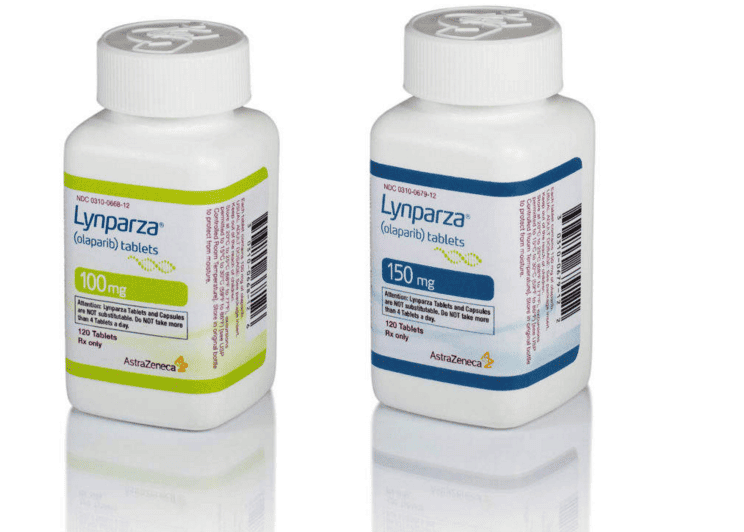
AstraZeneca/Merck & Co’s PARP inhibitor Lynparza cut the risk of death in new data released at the 2020 European Society for Medical Oncology (ESMO) virtual congress.
The phase 3 PROfound trial studied Lynparza in men with metastatic castration-resistant prostate cancer (mCRPC) with BRCA 1/2 or ATM gene mutations versus new hormonal agent (NHA) treatments enzalutamide or abiraterone.
In the key secondary endpoint of overall survival, Lynparza reduced the risk of death by 31% compared to enzalutamide or abiraterone. Median overall survival was 19.1 months for Lynparza, versus 14.7 months for the NHA treatments, which is particularly noteworthy given that 66% of men receiving enzalutamide or abiraterone had already begun using Lynparza following progression of their disease.
A further exploratory analysis showed a trend towards improvement in overall survival in the overall trial population with homologous recombination repair (HRR) gene mutations, with Lynparza reducing the risk of death by 21%versus enzalutamide or abiraterone.
Lynparza was approved in May by the US Food and Drug Administration (FDA) for the treatment of previously-treated metastatic mCRPC patients with mutations in their HRR genes, which includes BRCA1, BRCA2, ATM and 12 other gene mutations.
“These results help to transform the treatment landscape for certain men with metastatic castration-resistant prostate cancer, where overall survival has been very difficult to achieve,” said José Baselga, executive vice president, Oncology R&D at AZ.
“Lynparza is the only PARP inhibitor to demonstrate overall survival versus enzalutamide or abiraterone for men with BRCA or ATM mutations. We look forward to continuing to bring Lynparza to these patients around the world,” he added.
The new data could help Lynparza to gain an advantage over its main rival in mCRPC – Clovis’ Rubraca (rucaparib). Clovis’ PARP inhibitor was approved by the FDA a few days before Lynparza for the treatment of BRCA-mutated metastatic mCRPC.
Rubraca’s approval was based on the results from the TRITON trials programme, in particular the TRITON2 study which showed a 44% response rate with the PARP inhibitor in BRCA-mutated CRPC, and a 52% prostate-specific antigen (PSA) response.




